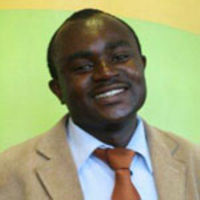
The President of the African Development Bank Akinwumi Adesina. FILE PHOTO
Dr Akinwumi Adesina was probably more known for
working with rural agricultural communities than scandal. Now, as
President of the African Development Bank (AfDB), he may be punch ball
of a
global political agenda pitting the US against African leaders, and
maybe China.
Since last month, Dr Adesina
has been fighting allegations of inappropriate acts that could ruin his
career and roil a near-certain unopposed re-election this August. But
his stay, or going, could punctuate relations between Africa and the US.
On
Tuesday, some observers told the Nation the impasse over the
credibility of the Bank’s President could ruin more than his career.
“The
leadership crisis at the AfDB is too important to ignore, especially at
this time when the lender is raising funds to shore up its capital base
for onward lending to African countries, many of which are battling
debt crisis and the corona pandemic,” Dr Peter Mwencha, a specialist in
international political economy and CEO of the International Relations
Society of Kenya said, referring to the Bank’s bid to raise more than
$100 billion from shareholders.
“From a
geopolitical perspective, this issue has brought up concerns about
allowing foreigners an outsized stake in African affairs. Africans are
questioning why foreigners should have such a huge influence in such an
important African institution,” he added, but challenged African leaders
to consider raising their shareholding of the Bank.
Here
is how: As Nigeria’s Agriculture minister, Dr Adesina was named Forbes
Person of the Year in 2013, for ‘revolutionising’ agricultural policies
in his country.
There had been no scandal against him
since he took over as President AfDB in 2015. In fact, he has led the
institution, formed in 1964, on a campaign to steer clear of fossil fuel
projects, dumping all dirty coal-related funding and instead focusing
on powering rural homes using renewable energy.
That
was until January this year when anonymous employees of the bank wrote
to some directors alleging Dr Adesina had overreached his hand, awarding
contracts to his cronies and relatives as well as using the position to
enhance his personal stature.
When more
allegations, anonymously, emerged in April about how he had paid
employees who resigned mysteriously, the AfDB board endorsed an internal
audit. That committee returned a report suggesting there had been no
evidence linking Dr Adesina to the allegations.
But
the US government wasn’t satisfied so Treasury Secretary Steve Mnuchin
wrote a letter rejecting the results of the internal audit. He argued
the dismissal of all allegations against Dr Adesina will “tarnish the
reputation of the institution,” according to a May 28 letter to the AfDB
board.
One employee of the Bank, who wished
to remain anonymous told the Nation AfDB has witnessed high profile
resignations in the past five years, with the officials being paid
handsome severance packages suspected to buy their silence. Dr Adesina
denies any wrong doings.
But the US stance,
to have Dr Adesina re-investigated, has seen African leaders, including
Nigeria where he comes from rally behind their man.
Nigerian
ex-President Olusegun Obasanjo rallied more than a dozen other former
leaders to endorse an open letter to Washington, warning the stance
would divert the Bank’s attention to the Covid-19 pandemic.
“At
this critical time that Africa is battling with Covid-19, the Bank and
its President should not be distracted,” Mr Obasanjo argued in a letter
that was also signed by Mr Jakaya Kikwete, Mr Goodluck Jonathan, Mr
Joachim Chissano, Ms Ellen-Johnson Sirleaf, Ms Joyce Banda, Mr Tandja
Mamadou and several other leaders.
While
the leaders called for respect for protocol, they raised a pan-African
issue, indicating the Bank was the most important institution on the
continent and that it was “the pride of Africa.
All
African countries are members of the Bank, but it also has 27 members
from countries outside the continent. It, however, lends exclusively to
Africa.
Nigeria and the US are the biggest
AfDB shareholders. The two command a 15 per cent share combined, but
Nigeria has 9.1 per cent in the institution formed 55 years ago.





No comments :
Post a Comment